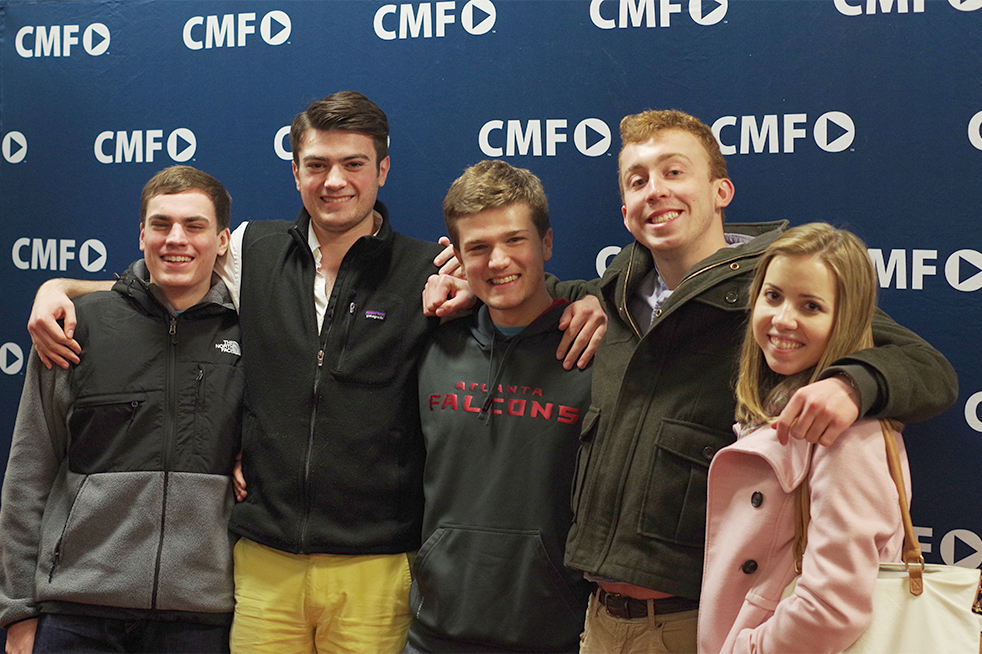Fifteen years ago, students at Emory University endeavored to spread the joy of filmmaking. In 2004, Tech was introduced to their creation in the form of Campus MovieFest, or CMF for short. Eleven years later, this event has grown to include many universities, and Tech’s participation has reached 142 teams.
Campus MovieFest is a weeklong project where teams sign up to receive filmmaking equipment and create five-minute-long short films. At the end of the week, the teams’ finished shorts are compiled and judged, with the top sixteen films being selected for showing at Tech’s CMF Finale, which took place last Monday, Feb. 2. Of these sixteen, four win Jury Awards, which leads to their shorts being shown in Hollywood alongside the finalists from other colleges during the next round of Campus MovieFest’s competition.
Last Monday, the Student Center Theatre was not packed, but at least it was mostly full of students eager to see their films, or their friends’ films, shown in public for the first time. Of course, as is common at Tech, passersby saw the large conglomeration of well-dressed people, inquired what was happening and became part of the audience.
Promptly at 7:37, the overly enthusiastic Directors of Marketing and Operations, Nishant Gogna and J.R. Hardman respectively, came onstage and announced the commencement of the screenings. After each showing of four films, these two energetic announcers returned to thank sponsors, give background information, draw raffle tickets and generally attempt to make the CMF Finale a success.
Their efforts, while appreciated, were not entirely necessary, merely an added bonus, as the sixteen films were entertainment enough. Although all submissions are posted on Campus MovieFest’s website, it is quite an experience to see the films on a big screen where viewers can truly feel the reactions of the rest of the audience.
The stories presented covered most genres of films, ranging from the ludicrously high body count of Crisis, to addressing social issues in Stigma, to the post-apocalyptic Dust. There was a film for all tastes, but it is worth noting that most were quite morbid and dark. Even so, the audience thoroughly enjoyed the feats of cinematography shown on Monday. Considering each team had but a week in which to make their videos, the effects, stories and quality of the shown films were quite phenomenal.
Though each film was entertaining or thought provoking as the case may be (it would be misleading and rather improper to call something that draws attention to suicide as Tracks does entertaining), one stood out among the rest as far as garnering support from the audience. This distinction went to the film by Clappity Productions, Getting to Ten, which depicted two friends (Paul Jackson and Duane Stanford) arguing about a hand clapping game. It was probably best summarized by director Stanford himself when accepting his well-earned Best Actor award, “Things that we do are meaningless, but friendships, they mean something.”
After showing all sixteen finalists, the two directors came on stage for the moment every participant had been waiting for, announcing the winners. In addition to the four Jury Awards, there were several Silver Tripod Awards going to the entries with the Best Story, Best Production Design, Best Actress and so forth. Each award announcement was met with a nigh endless round of applause and the recipient was allowed to give a speech, if they so chose.
For the most part, these consisted of a flustered thank you and the obvious desire to get off the stage. The audience obligingly pretended not to notice and supported the winners with more applause; the atmosphere was quite jovial and welcoming.
At long last, the time came for announcing the overall Jury Award recipients. The combined expectation and nervousness of the audience increased drastically, allowing for the directors to have some fun in jokingly announcing that the winners would be notified via email the following day. Play aside, the audience was ecstatic to learn that the winners were Stigma, Dust, Lil’ Bun, and, predictably, Getting to Ten.
